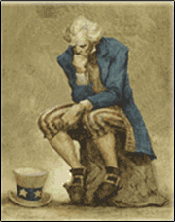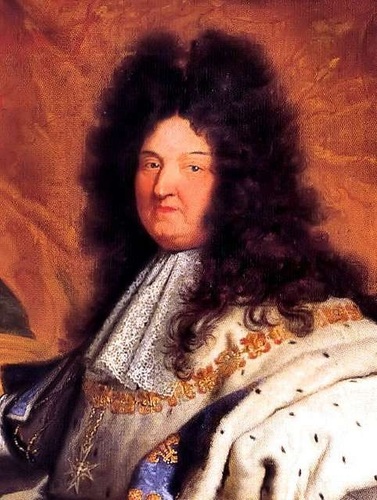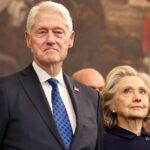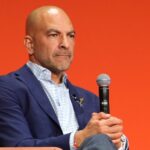
–>
August 12, 2022
“L’Etat, C’est moi!”
‘); googletag.cmd.push(function () { googletag.display(‘div-gpt-ad-1609268089992-0’); }); }
Roughly translated, the phrase means “The State; It’s me.”
Purportedly spoken to the French Parliament in April 1655 by seventeen-year-old Louis the 14th, the phrase reeks of self-importance, supreme confidence, and the determination to wield unfettered political power with no distinction between the man Louis was and the political position he held.
It wasn’t until some 60 years after Louis’ death in 1715 that uppity, English-speaking North American colonists rebelled against their own divinely anointed monarch, the English King George. It took eight years of war, and a little help from Louis’s great-great-great grandson Louis 16th, before the colonists forged a representative republic modeled on England’s constitutional monarchy.
‘); googletag.cmd.push(function () { googletag.display(‘div-gpt-ad-1609270365559-0’); }); }
Built on a principle diametrically opposed to the Divine Right of Kings, the new American Constitution set the standard for modern governance with a simple, profound, and radical idea: the people are sovereign, not a monarch. Articulated first and most famously in the Declaration of Independence, this American idea sprang from the enlightenment concepts of Natural Law and the Natural Rights of man; rights inherent to each individual because they had been created by a “Prime Mover.”
And while the American Founders rejected the idea of a monarchy, they emphatically retained the principle that both rights and political power stem from an ultimate authority beyond and above any earthly government. And they believed that this meant each individual was inherently endowed with irrevocable rights and sovereignty over his or her self; rights and sovereignty that superseded any rights an earthly government could either bestow or take away.
So the Founders codified into law government’s primary purpose: to provide a political and judicial structure wherein each individual is free to pursue his or her own prosperity and happiness. Any power and authority of the government was granted by the people to be wielded for the people through their representatives. Furthermore, the institutions these representatives created and controlled were subject to the will of the people they served, not the other way around. In short, the government’s primary and most important function is the protection and guarantee of each individual’s natural rights.
However flawed the implementation of this idea has been, the principle of individual sovereignty is an ideal to be perfected; a light that guides our individual and institutional aspirations.
This is American Dogma.
It is important to note two subtle and often unarticulated principles that undergird our Constitution. The first idea is that power is vested in institutions and the offices, not the people who hold positions of authority in these institutions. Secondly is the idea that all men and women are subject to the rule of law and that all laws, ideally, apply equally to all citizens. If these principles are abandoned, corrupted, or overthrown our way of governance is perverted: government of the people, by the people, for the people shall have perished from the earth. We will have become a government of men and women who serve themselves, not the sovereign, and mask themselves in a moral virtue and substance virtue and substance they do not possess. When this happens, we will no longer be either the nation or the people we, constitutionally, define ourselves to be.
‘); googletag.cmd.push(function () { googletag.display(‘div-gpt-ad-1609268078422-0’); }); } if (publir_show_ads) { document.write(“
 residents and dictators the world over (and more than a few American politicians) assume the modern equivalent of the Divine Right of Kings by declaring themselves “Leader” for life or simply retaining “elected” office until the day they die. But rather than believing in the Divine Right of Kings, they believe, despite anything else they may say, in a combination of Saul Alinsky’s cynical adage ”Power is derived from two main sources — money and people” and Mao Zedong’s simplistic and vicious dictum: “Political power grows out of the barrel of a gun”
residents and dictators the world over (and more than a few American politicians) assume the modern equivalent of the Divine Right of Kings by declaring themselves “Leader” for life or simply retaining “elected” office until the day they die. But rather than believing in the Divine Right of Kings, they believe, despite anything else they may say, in a combination of Saul Alinsky’s cynical adage ”Power is derived from two main sources — money and people” and Mao Zedong’s simplistic and vicious dictum: “Political power grows out of the barrel of a gun”
Neither of these dicta has any mention of (or use for) a Divine being. In fact, the idea of anything being over and above men and their earthly realm is considered vile fantasy. The pattern is clear. Rise to power through an election (usually stolen) or armed revolution, claim legitimacy, then, by diverse underhanded means peppered with a healthy dose of violence, end up as dictator for life with powers, position, and perquisites that would make Louis 14th envious. Stalin, Mao, Hitler, Putin, Xi, Castro, Chavez, Hussein, and many others all have followed this path: grab power, rule with an iron hand, and utilize the most heinous means to retain it.
Such rulers have almost always led their nation to ruin.
The Constitution of the United States of America still stands. It is, as my immigrant wife learned in her studies for the citizenship exam, the supreme law of the land. And the intent of the Constitution remains clear, despite numerous and considerable challenges to it: each of our Republic’s officeholders, elected or appointed, are simply a steward of the position he or she holds and constitutionally limited and constrained in their power and authority. Officeholders are elected to represent the wishes of their constituents and have specific duties, power, and authority and limited terms of service. They are elected to serve the sovereign, the people, not to serve themselves.
A particularly pernicious form of this impulse toward power is the dynastic political “Family.” The Bushes, the Clintons, the Gores, the Kennedys believe they have a right to rule because… well, because a parent or grandparent was an elected official — and, of course it’s a great way to gain wealth, privilege, and status. Ostensibly they win their positions through “free and fair elections,” but in reality they utilize ”old boy” networks to wedge themselves into position. And they use money. Lots of money. Alinsky was right about that much.
Sadly and alarmingly, many American politicians and government appointees appear to have an antipathy to any limitation or constraint on their power or position. Nor do they want to give up the offices they hold. Retirement is for the little people. Today there are seven senators over the age of 78. The House of Representatives have ten members over the age of 80. Anthony Fauci is 81 years old. Joe Biden 79. The legal age of retirement, according to Social Security, is 70.
Why do these people, to alter a phrase from Barack Obama, “cling to their power and position?”
Like Louis the 14th, much of the American political class conflate themselves with the offices they hold. They claim the right to do whatever they want with the reins of government including sending our young men and women to kill and to die in undeclared foreign wars. And, like Louis, they understand that they can do what they want because they have both the literal and figurative muscle to execute their will, shield themselves, and punish their opponents.
But until the Constitution is overthrown or rewritten the people remain sovereign, whether our elected officials like it or not.
Let us not forget: “L’Etat c’est nous!”
The state is us.
Image: Hyacinthe Rigaud
<!– if(page_width_onload <= 479) { document.write("
“); googletag.cmd.push(function() { googletag.display(‘div-gpt-ad-1345489840937-4’); }); } –> If you experience technical problems, please write to [email protected]
FOLLOW US ON
<!–
–>
<!– _qoptions={ qacct:”p-9bKF-NgTuSFM6″ }; ![]() –> <!—-> <!– var addthis_share = { email_template: “new_template” } –>
–> <!—-> <!– var addthis_share = { email_template: “new_template” } –>







